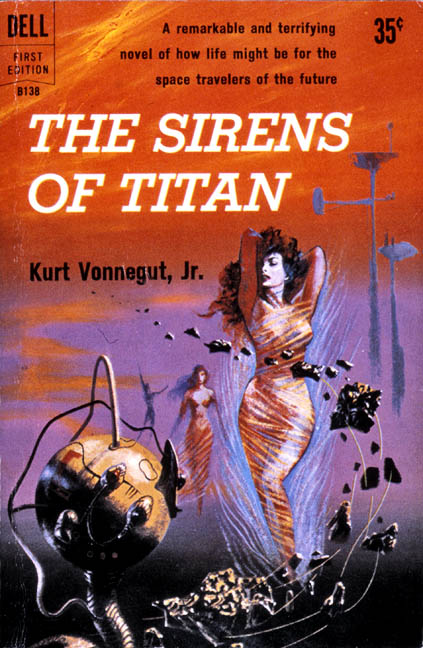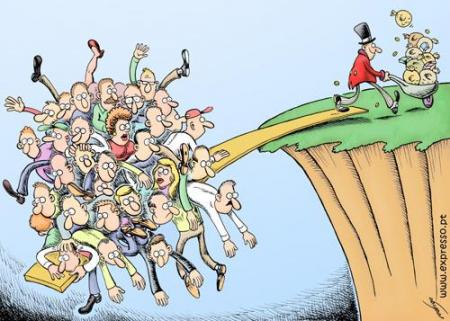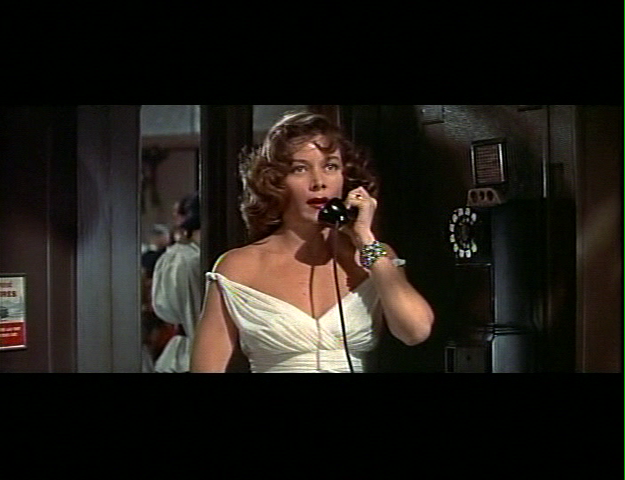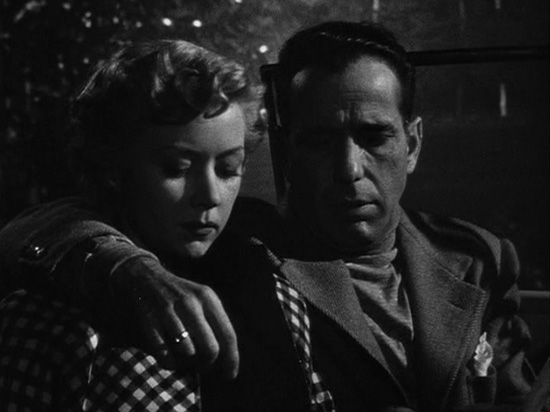I was delighted to discover just now that the Raymond Durgnat web site — relaunched about half a year ago, and one of my favorite movie-related web sites (which, even better, includes a lot of material about things other than movies, including some rare poems), has been growing and expanding lately; see, especially, Articles, Poems, and Additional Resources and Links for some of the new additions. It’s also worth recalling that Ray’s pioneering A Mirror for England came out in a second edition late last year, with a new Introduction by Kevin Gough-Yates, his literary executor, and this was about a year after the publication of a second edition of A Long Hard Look at ‘Psycho’, with a new Introduction by Henry Miller. (May 21 update, wonderful news: Miller has also edited a superb Durgnat collection of previously uncollected pieces that the British Film Institute plans to bring out in December 2012.)…On the web site, I haven’t found any activity yet on the Forum, but I’m hoping that this will start to grow soon as well. [3/11/12]
Recommended Reading: Two Invaluable New Web Sites…
…belonging to Yvette Biro and J. Hoberman. Let’s hope that both of these resources will grow and grow.
And meanwhile, here is a link to my review of Jim’s next-to-most-recent book. [10/02/11] Read more
Apology
Through a gross blunder on my part, I’ve just deleted all my posts in this section and under Notes over the past six weeks and all the future posts I had set up to go out over the next few weeks! Until or unless I can find a way of recovering some or all of these, the usual “new” content on this site will have to be held in abeyance. If anyone who works with WordPress and knows anything about recovering lost content can help me out with this, I’ll be immensely grateful; please email me at jonathanrosenbaum2002 at yahoo.com. Update, a few hours later: thanks to cached posts on Google, I’ve recovered most or all of the older posts by now, as users of this site can see. But I haven’t yet found a way to recover any of the future, not-yet-posted texts. I also no longer recall which long reviews from the Reader I had scheduled (which are easily recoverable, but only if I can identify which ones they are), so if any readers happen to notice any of these missing texts from this site, I’d welcome hearing about them. — J.R., 10/1/11 Read more
A Double Standard at the Library of America?
Until recently, it has appeared that the Library of America has completely embraced the contemporary gentrification of “trashy” crime fiction to the highest ranks of literary canonization while it has almost as completely rejected the premise of according this same treatment, or anything that even distantly approaches it, to science fiction or western fiction. (I’ve already posted a little bit about this issue, last month.) But now that Philip K. Dick and Kurt Vonnegut, Jr. have recently entered LOA’s Hall of Fame, I wonder how unreasonable it might be to hope that, say, Ray Bradbury (see below), Fredric Brown, Robert Heinlein, Henry Kuttner and/or C.L. Moore (see below), and Theodore Sturgeon (see below), among others, might be among the next in line for consideration. (I wouldn’t presume to list any candidates for canonizing western fiction.)
There will always be differences and disputes regarding LOA’s choices, of course. And the fact that I prefer Philip K. Dick’s Pi in the Sky to most of the 13 other Dick novels selected by Jonathan Letham for LOA, or that I value Charles Willeford’s four Hoke Moseley novels of the 1980s as literature far more than his second novel, Pick-up (1955), doesn’t factor in various other considerations, such as editor Robert Polito selecting Pick-up as one of the five novels included in LOA’s American Noir of the 1950s volume, whereas there isn’t an American Noir of the 1980s volume edited by anyone. Read more
THE SIRENS OF TITAN etc.



It’s more than a little unnerving to discover that the “canonized” Kurt Vonnegut, Jr. collection that Library of America is bringing out on June 11 excludes my favorite work of his — his mind-boggling second novel (1959), The Sirens of Titan, by all counts his wittiest and most profound — as well as Mother Night (his third, 1961), another major work.
Of course, it’s entirely possible that Library of America is planing one or more other Vonnegut volumes, thus theoretically making room for the first three novels (Piano Player in 1952 was his debut effort) as well as more of the late and relatively weak ones, along with his play, Happy Birthday, Wanda June, and other stories. But the weird thing about LOA’s canonizing is that it creates contestable and uncomfortable groupings, even when they’re simply chronological; for me, Cat’s Cradle (1963) belongs squarely with the two novels preceding it, not with the three that came afterwards. This isn’t quite as grotesque as collecting William Faulkner’s The Sound and the Fury in the same volume as his Soldier’s Pay, Mosquitoes, and Flags in the Dust (the longer version of Sartoris), which the Library of America also did, but it’s still bothersome. Read more
Princess Theater, Florence, Alabama in the 1930s
Stanley Rosenbaum House, Florence, Alabama, November 1943
I recently discovered this photograph, for the first time, on a Facebook page called Remembering Florence that has lately been growing to astronomical proportions. I estimate that I must have been somewhere between eight and nine months old when it was taken. I don’t even remember the tree in the right foreground, but I love the way the glass doors visible on the left reflect another part of the house’s exterior. According to normal terminology, this is the “back” of the house, but I believe that Frank Lloyd Wright, who designed it in the late 1930s, would have called it the “front”. Below is a photo taken (I think) on the same occasion, which we would call the “front” of the house and Wright would have called the “back”. (The house’s extension, built after my two younger brothers were born, in 1948, changed the overall shape. For more details, go here, or check the more contemporary color photos I’ve just added, shot from different angles.) (2/1/11)
Thomas Frank on the government
“The government fails the people of New Orleans when they are hit by a hurricane, fails to notice the cadmium paint in the marketplace, does a lousy job educating our kids, can’t keep the libraries open or the park lawns mowed, overlooks the catastrophic shortcuts taken by its pals in the oil-drilling industry — and all we can do to express sour frustration is elect candidates who promise to hack it down even more.”
–“Servile Disobedience,” Harper’s magazine, February 2011, p. 7 [1/23/2011] Read more
DAVE BRUBECK: IN HIS OWN SWEET WAY
Written for the January/February 2011 Film Comment. — J.R.
Dave Brubeck: In His Own Sweet Way
(Bruce Ricker, U.S.)
Ironically, the most popular American jazz musician is also one of the most undervalued among the cognoscenti. As the leading distributor of jazz documentaries (and Clint Eastwood’s jazz consultant), Bruce Ricker may be the ideal filmmaker to re-introduce Brubeck to a wider public. Although he regrettably doesn’t include a full performance of any song before the final credits, Ricker conveys what a wonderful person Brubeck is and gives a fine notion of some of the richness of his music.—Jonathan Rosenbaum
Read more
Recommended Reading: n + 1, Fall 2010
They call it their “Self-Improvement” issue, and while flying today from Richmond to Chicago, I read three especially good articles about the sorry state of our nation, each one a pretty good substitute for the sort of news and editorials that we’re no longer getting. Here are teasers from each one:
From “Revolt of the Elites” (unsigned) in The Intellectual Situation (p. 15):
“Who…is guility of elitism, if not the elitely educated in general? The main culprits turn out to be people for whom a monied and therefore educated background lies behind the adoption of aesthetic, intellectual, or political values that demur from the money-making mandate that otherwise dominates society.”
From “Caucasian Nation” by Marco Roth in Politics (p. 14):
“The robust case for dominating other people sounds awful to most American ears today. So the contemporary idea of ethnocracy relies instead on an opposite rhetoric of victimization. The simple-minded mantra we’re taught in grade school goes like this: blacks good because oppressed, whites bad because oppressors. So if whites suddenly became oppressed, even while remaining the majority, they would magically become good again. Many Americans are now being taught to think this way.”
From “The Two Cultures of Life” by Kristin Dombek in Essays (p. Read more
Recommended Pre-Election Reading (and Brief Post-Election Lament)
www.guardian.co.uk/commentisfree/cifamerica/2010/oct/24/obama-never-room-for-radical-change
This piece by Gary Younge appeared a little over a week ago but is still relevant. Here are two particularly salient passages:
It is not unrealistic to believe that a country as wealthy as the US should be able to provide healthcare for all, a dignified life for its elderly, an infant mortality rate better than Cuba’s, a life expectancy higher than Bosnia’s, a foreign policy that does not hinge on military aggression, and an economy where fewer than one in seven live in poverty. What is unrealistic is to believe that any of those things can be achieved, or even seriously tackled, with just a single vote.
Republicans will head to the polls to elect people who will actually cut jobs and support bankers. Democrats may well stay at home because their candidate has not made things better, and in so doing make things worse. Neither disaffection nor rage are electoral strategies. But in the absence of an alternative, frustration has political consequences.
November 3: American voters have spoken, and the message appears to be to leave Tomorrowland for Frontierland while remaining in the same Disney theme park, albeit this time without any tickets. Read more
Recommended Reading: Aaron Cutler on CERTIFIED COPY
Keith Jarrett, Symphony Center (Chicago), February 12, 2010
Why did I book a ticket to this solo concert long in advance, even though I have yet to shell out for Paris/ London: Testament, the three-disc album he released last October, which the concert was meant to promote? I guess it’s basically a matter of not getting too many chances lately to see Jarrett live — meaning that I’m even willing to put up with an evening of his playing that’s mainly devoted to his relatively dull and uninspiring impromptu originals.
There’s always been a certain solipsistic side to some of Jarrett’s predilections as a performer. If memory serves, the last time I saw him live was at a Left Bank cave in Paris called La caméléon circa the early 70s, less than a block from my flat, and I can still remember how infuriated I was when he insisted on playing the flute — not especially well — during a large portion of his set. His stabs at performing classical music, no matter how “competent,” often seem comparably misguided. Similarly, when he chooses to go “free-form” nowadays and play some version of what used to be regarded as avant-garde jazz, I’d much rather hear Cecil Taylor than Jarrett’s much inferior version of that style. Read more
Recommended Reading: VINCENTE MINNELLI: THE ART OF ENTERTAINMENT
VINCENTE MINNELLI: THE ART OF ENTERTAINMENT, edited by Joe McElhaney, Detroit: Wayne State University Place, 2009, 458 pp.
In spite of my disappointment that Mademoiselle — Minnelli’s extraordinary centerpiece in The Story of Three Loves and surely one of his greatest films — gets virtually ignored here, this is a terrific critical collection, so I’m very grateful to Girish Shambu’s blog for calling my attention to it. Among the many treasures to be found here are what appears to be the very best French criticism about Minnelli, expertly translated by Bill Krohn, Jean-Pierre Coursodon, and Brian O’Keefe, including Raymond Bellour (on Brigadoon), Serge Daney (separate pieces on The Pirate and The Cobweb as they each appear on French TV), Jean Douchet (separate pieces on The Four Horsemen of the Apocalypse and Two Weeks in Another Town), Emmanuel Burdeau (who also has two pieces), and Jean-Loup Bourget. There are also sturdy contributions by, among others, Krohn himself, Scott Bukatman, Thomas Elsaesser, Adrian Martin, James Naremore, Dana Polan, Robin Wood, and two essays apiece by Geoffrey Nowell-Smith, David A. Gerstner, and the editor, Joe McElhaney.
Back in the mid-1980s, I published a survey about Minnelli’s work on video, titled (I believe) “In Dreams Begin Responsibilities,” which I seem to have misplaced — something I’m mentioning now only because I’ve often thought that this particular phrase from William Butler Yeats perfectly describes Minnelli’s auteurist thematics. Read more
Recommended Reading: Hoberman on IN A LONELY PLACE
Recommended Reading: An excellent piece about In a Lonely Place, and Nicholas Ray more generally, by J. Hoberman in this week’s Village Voice. My only (minor) quarrel is with the following phrase: “An ex-Communist who was never persecuted, and must have wondered why…” From Bernard Eisenschitz’s definitive biography, one can pretty clearly surmise that Ray was protected from the Blacklist by Howard Hughes, for whom he was a sort of patch-up man, semipermanently on tap — something he must have been perfectly aware of. [7/17/09] Read more






















